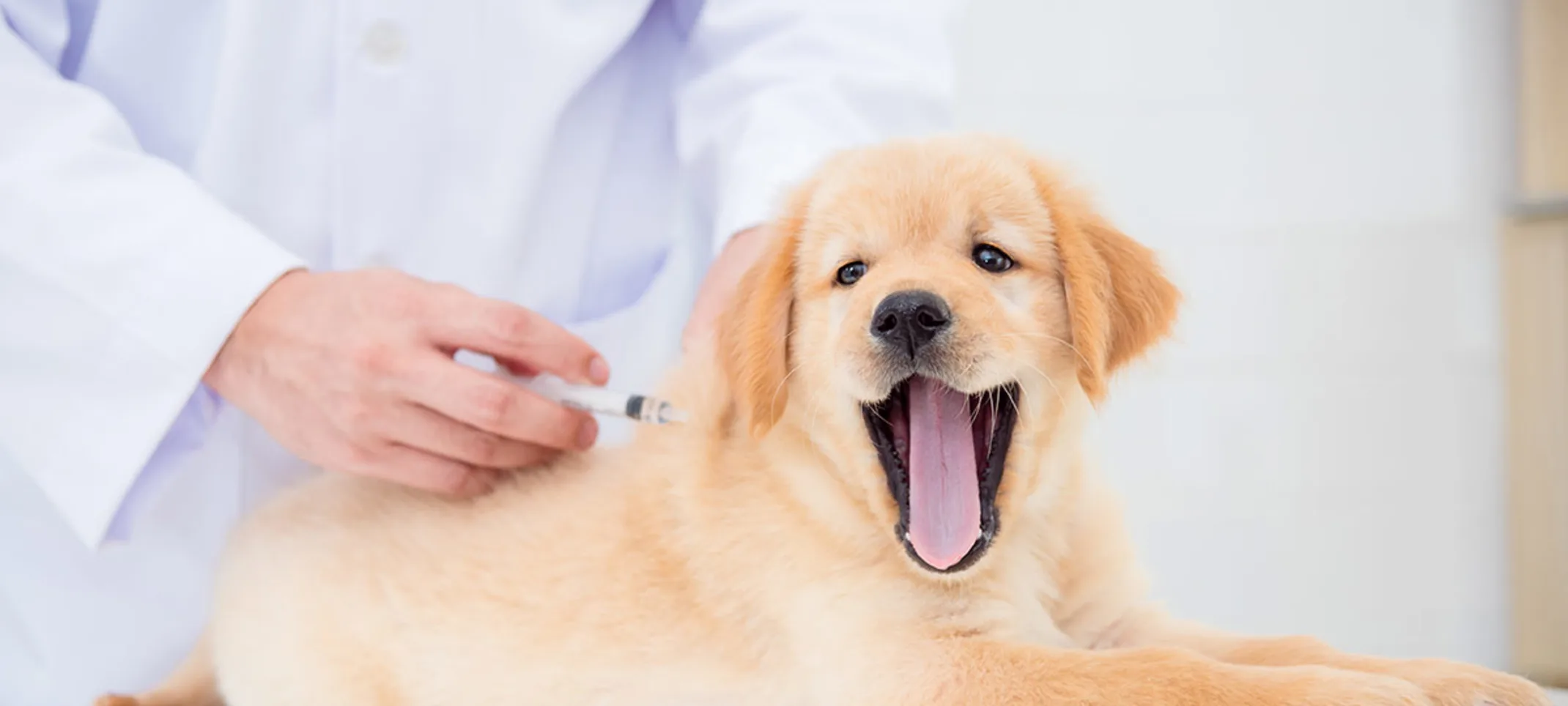Sachem Animal Hospital
Vaccinations
Preventative care is an important aspect in maintaining your pet’s health. Proper vaccination is vital in protecting them against harmful diseases.

Overview
We believe that preventative care is one of the most important aspects of maintaining your pet’s health. There are a variety of diseases that affect animals, so proper vaccination of your pet is vital in protecting them from the many types of illnesses to which they are susceptible to.
Why are vaccinations important?
Vaccinations are vital to the health and protection of your pet, and serve as a preventive measure in combating viral diseases like Parvovirus, Parainfluenza virus, Distemper, Lyme, Panleukopenia, Feline Leukemia Virus, and Rabies.
When should my pet get vaccinated?
Vaccinations are particularly important for puppies, kittens, and other young animals that have immature immune systems. Veterinary vaccinations generally begin at 6-8 weeks of age and then boostered throughout your pet’s life depending on the vaccine. Our doctors will determine the appropriate vaccination plan for your pet.
How are vaccines administered?
Vaccines help to combat diseases by exposing the pet's immune system to inactive or small amounts of a particular form of bacteria or virus. Vaccines are administered through a subcutaneous injection (under the skin), orally, or intra-nasally, depending on the vaccine.
Vaccinations are accompanied by a consultation and examination with our veterinarians to make certain that your pet's condition is stable enough to receive them. Proper and timely administration is necessary to ensure optimal protection.
Our Program
Up-to-date vaccinations play a large part in keeping your pet healthy and free from disease. However, not every pet requires the same series or frequency of vaccines. Our veterinarians will tailor a vaccine protocol that's specific to your pet based on his or her lifestyle. We do recommend the following general vaccination schedule:
Cats
Rabies: Every 3 years, after initial 1 year booster
FVRCP: Every 3 years, after initial 1 year booster
FELV: Annually for outdoor cats
Dogs
Rabies: Every 3 years, after initial 1 year booster
DHPP: Every 3 years, after initial 1 year booster
Bordetella: Every 6-12 months, depending on lifestyle
Lyme Disease: Annually, depending on lifestyle
Leptospirosis: Annually, depending on lifestyle
Vaccine schedules should be balanced to provide needed protection while not over-vaccinating your pet. Please talk to one of our veterinarians for more information about vaccinations.
